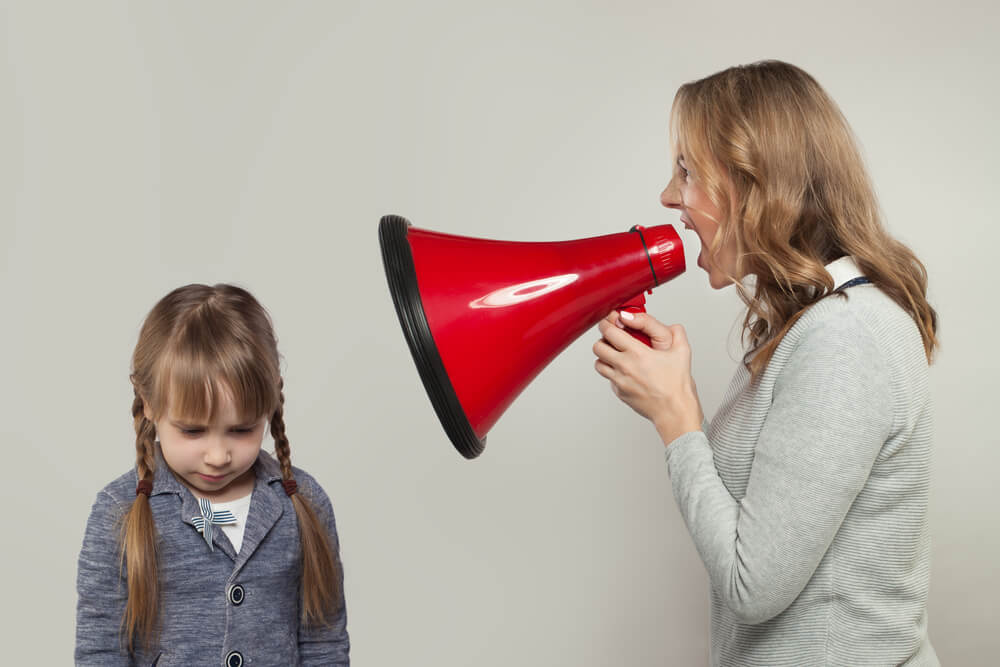«Mom, I’m scared»: how to help a child cope with their fear
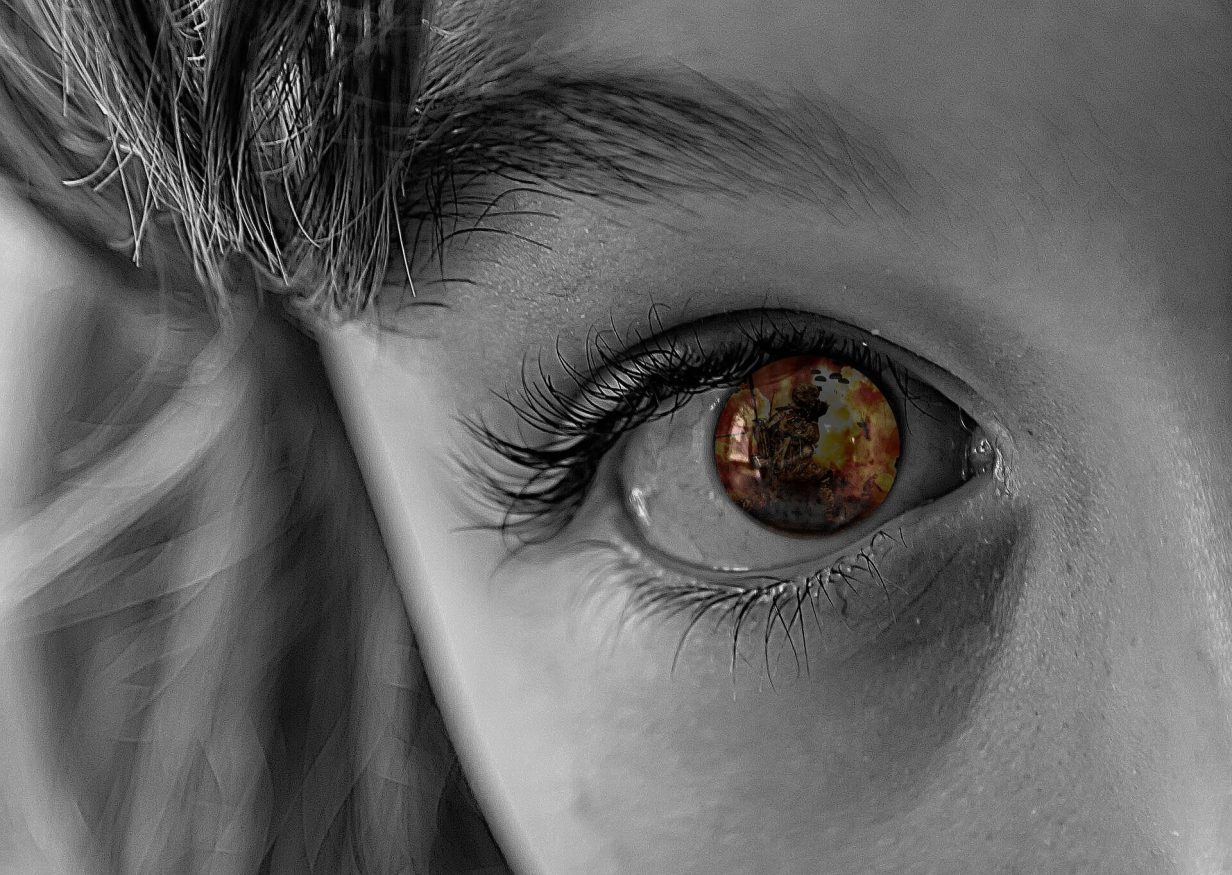
The problem of childhood fears is familiar to many parents. Young children are afraid of Dracula, children of school age are afraid to give a presentation in front of the class, and teenagers are afraid to seem unattractive to the opposite sex.
Most fears are related to the age of the child and disappear over time. However, if fear persists for a long time and brings concern not only to the child but also to the parents, this is the time to consider it seriously.
In this article, you will learn what daytime and nighttime fears are for children, what they are associated with and how to help your child overcome their own fears.
Contents:
- Types of Fears
- What are children of different ages afraid of?
- Causes childhood fears
- How to recognize a child’s fear?
- How to help your child cope with their fears?
- Tips for parents
Types of Fears
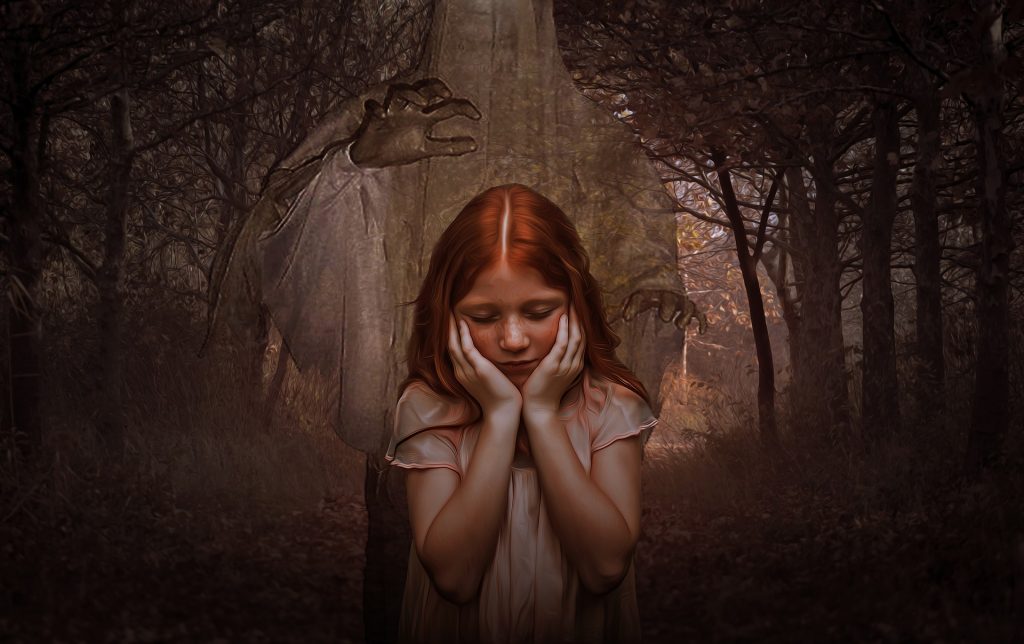
Prostock-studio/Shutterstock.com
The fears of children can be divided into two main categories: daytime fears and nighttime fears.
Daytime fears
Daytime fears in children can be of the following type:
- Natural (based on the self-preservation instinct): fear of death, darkness, heights, animals, natural disasters, loud noises, confined spaces, pain.
- Social: fear of loneliness, of people, of punishment, of being late, of condemnation.
- Situational: fear as a consequence of a traumatic event (for example, a child who almost drowned in the lake, is now afraid to swim, even in the pool).
- Personal: fears that are associated with the individual characteristics of the child (shyness, isolation, anxiety).
- Imaginary: fear of monsters, Frankenstein, ghosts, etc.
- Obsessive fears or phobias: a strong and irresistible fear associated with an event or a phenomenon in a person’s life.
Nighttime fears
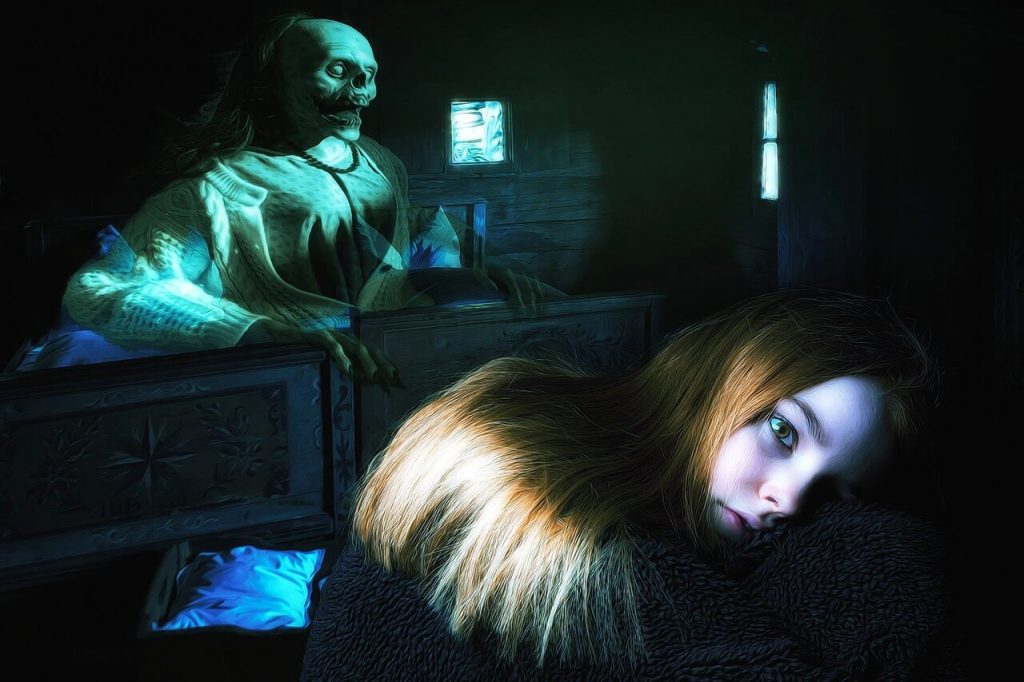
Prostock-studio/Shutterstock.com
Nighttime fears in children can manifest themselves in the form of nightmares, dreams, sleepwalking, or talking in sleep. Scary dreams can be repetitive and haunt the child almost every night. Such dreams are a result of the functioning of the brain, which carries on working during the night and processes information received during the day.
Studies have demonstrated that approximately 3% of all children on the planet under 14 suffer from nighttime fears.
Causes of nighttime fears in children:
- sensitivity, anxiety, and suspiciousness of children, as well as of their parents;
- stress;
- change in the familiar environment;
- sickness and fever;
- accidents and fear;
- unfavorable family situations (conflicts between the parents or divorce);
- emotional alienation of parents;
- increased expectations for the child, frequent physical punishment.
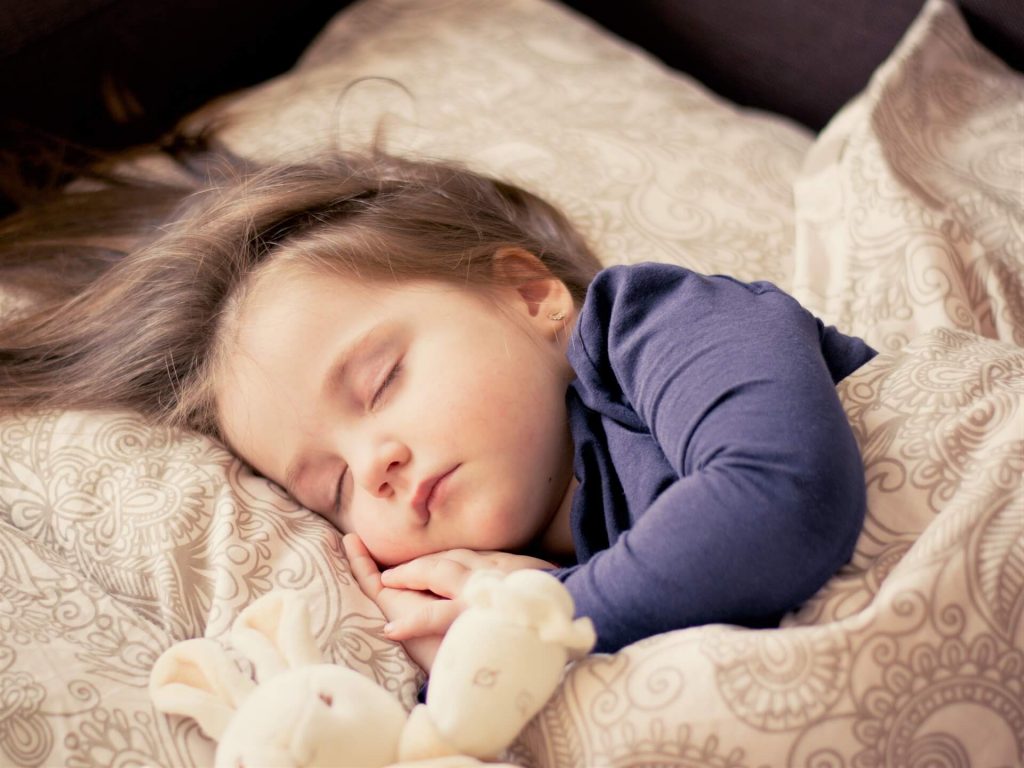
Prostock-studio/Shutterstock.com
Most often, nightmares haunt children from 5 to 12 years old.
The child starts being afraid to fall asleep alone, asks to leave the light on or for one of the parents to lie down with them. Their sleep is restless, they toss and turn, sometimes even screaming a little. In the morning, they feel tired, broken, depressed and start making scenes. Parents, in turn, also begin to get nervous and annoyed with the child. In the evening, it starts all over again – restlessness, increased anxiety, and the unwillingness of the child to go to sleep.
In order for that situation not to become critical, and the nighttime fears of the child not to develop into a pathology, the help of a neurologist or a psychotherapist is necessary. Parents should follow the recommendations that those professionals will provide to them.
What are children of different ages afraid of?

Prostock-studio/Shutterstock.com
During the mother’s pregnancy
Yes, it is true, the sensation of fear starts developing in a child during fetal development, when the mother feels very anxious. A portion of hormones is passed from mother to child through the placenta, and in response to this, the baby may start showing strong anxiety – with pushing and kicking. This way, they express their reaction to fear.
As a newborn
Anxiety in infants is often associated with their physiological needs not being fulfilled. Later, the need for emotional contact with the mother emerges. If the mother is strict and does not express her love, rarely approaches the child and smiles at them, the child becomes moody and restless. Also, babies fear the separation from their mother, as wells as strangers and loud noises.
1 to 3 years old
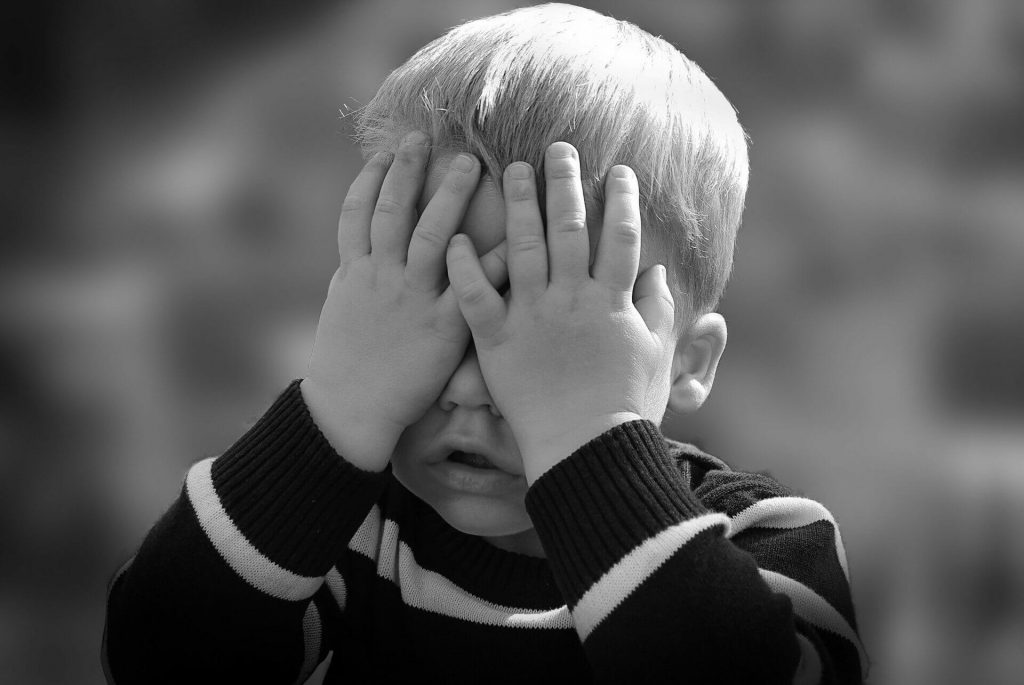
Prostock-studio/Shutterstock.com
The child grows, and with it, their levels of activity and desire to explore the world increase. And suddenly, an affectionate and kind mother begins to forbid something, limit the child’s freedom, and starts raising her voice. Naturally, in this situation, the child begins to experience restlessness and anxiety.
If adults manage to maintain a balance between what is allowed and what is not, the child grows up calm and confident. They obtain their first experience of exploring the dangers of the world (for example, that fire burns, ice is cold, and if a finger with the door – it will hurt) and learns to avoid them.
If the child’s life is full of restrictions and prohibitions, and an overly caring approach reigns in the family, then the child grows up as an anxious individual, dependent on their parents and afraid of their own shadow.
Toddlers also have a strong fear of pain. Hence, the tantrums before going to the doctor, the fear of injections and other medical interventions.
4 to 5 years old
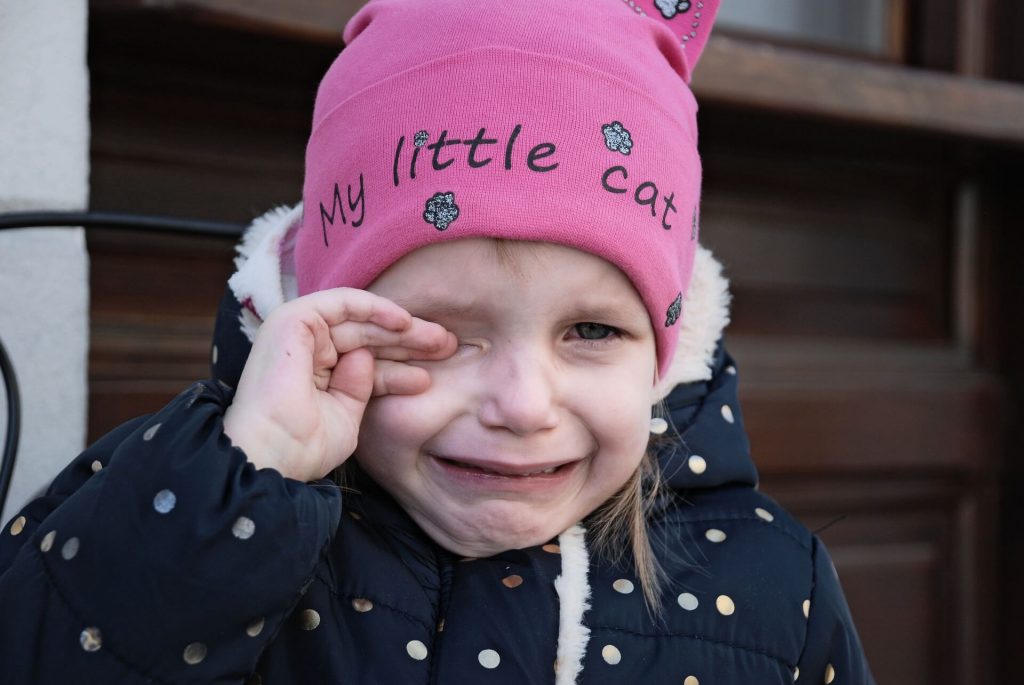
Prostock-studio/Shutterstock.com
By the age of four, children start developing a fear for fictional characters (vampires, Frankenstein, Godzilla). Fear of these creatures is associated with disturbing relationships with adults, primarily within the family. Vampires have the image of being mean and cruel. Frankenstein – cold and heartless. And Godzilla seems to be very big and evil.
Kids also fear the dark, they are afraid to fall asleep and to be left at home alone. This is due to the fact that children, left without their parents, feel that they are unable to protect themselves from the dangers of the world around them.
6 to 7 years old
Children of preschool age start fearing death, both their own and the death of their parents.
Fears of the darkness and loneliness also remain strong. The fear of fairytale characters is replaced by the fear of ghosts, monsters, aggressive cartoon characters and computer games.
8 to 11 years old

Prostock-studio/Shutterstock.com
By the time the child starts going to school, their fears start going away.
But, at this point, the so-called «school fears» appear: being late for school, giving an incorrect reply to a teacher’s question, fear of strict teachers and of classmates.
There is even the term Fear Of School – which is an obsessive fear of attending school. Often, this fear is associated with the fact that an «overly protected» child is affected by the separation from their parents while at school and questions their ability to cope with responsibilities at school.
Parents can also unknowingly contribute to the development of «school phobia» by constantly monitoring their child’s homework and being unhappy with their bad grades.
Also, younger students are afraid to not comply with social requirements: to be a bad student, an unreliable friend, a son or a daughter that is not loved.
In addition to «school fears», children at this age are afraid of natural disasters: hurricanes, tornados, earthquakes, as well as ghosts and the dead.
Find out what your child is afraid of in school, whether they are doing well in class or in relationships with peers. Install the Findmykids app from AppStore and GooglePlay.
11 to 16 years old

Prostock-studio/Shutterstock.com
In the phase of adolescence, children undergo active puberty, their body shape changes, as well as their voice, their body weight increases or decreases. Therefore, many begin to feel the fear of this change and the fear of becoming unattractive to the opposite sex.
The fear of death reaches its peak at this age. Children are afraid of the war, a serious illness, a terrorist attack.
«Social fears» reach their peak too: fear of being ridiculed, condemnation, collective rejection of peers and even bullying.
Girls are more prone to experience fears than boys, because of their sensitivity and emotional vulnerability.
In adolescence and in preschool, the more strict and intolerant parents become towards their child, the greater the number of fears they would have.
Fears contribute to a teenager’s self-doubt, isolation, increased anxiety, and depressive thoughts.
Causes childhood fears
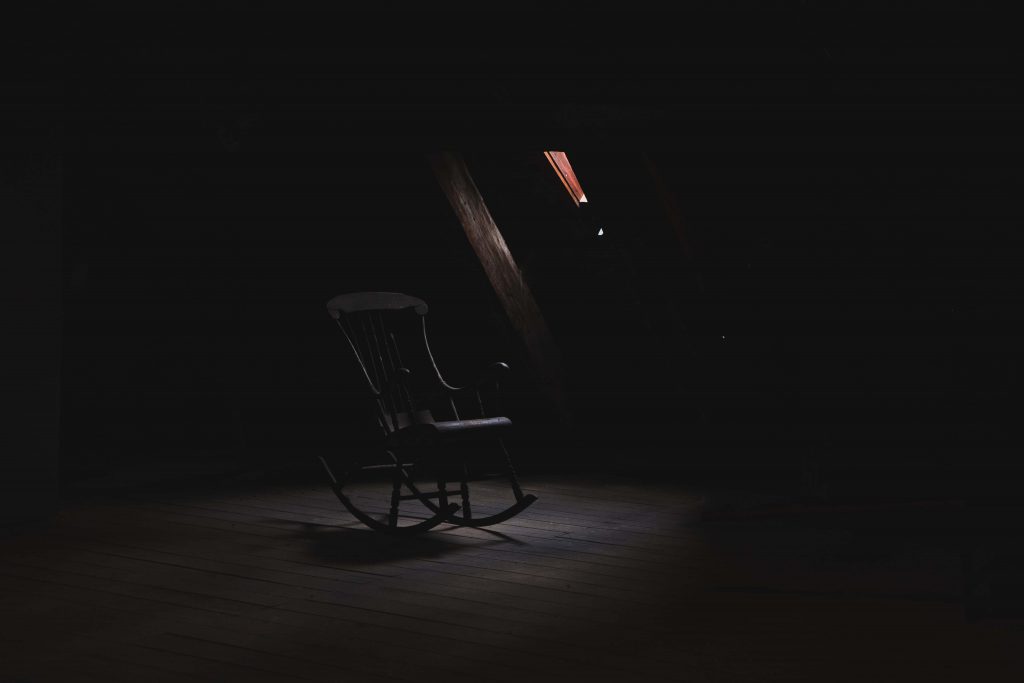
Prostock-studio/Shutterstock.com
- The overprotective approach in combination with increased anxiety of parents.
Restless parents, worried about everything, unconsciously send a message to the child: «This world is full of dangers. You will not be able to cope with them yourself. Stay with us at all times, and we will protect you».
Especially affected in this regard are the only children in the family.
The age of parents also plays an important role. The older the parents, the more they show concern for the life and health of the child.
2. Conflicts between parents, frequent physical punishment, especially from the part of the father.
A child in such an atmosphere grows up timid and insecure.
3. Emotional «coldness» of parents.
The basic sensation of trust towards the world is not formed in the child – the sense of being protected and safe.
4. A traumatic situation in the past, fear.
Any negative experience can be entrenched and cause a feeling of fear in the future. For example, if a child was bitten by a dog in their early childhood, they will fear even small dogs in the future.
5. Films, videos, computer games with frightening characters.
The child’s thinking is not critical yet, and many are beginning to fear monsters from films in the real world.
6. Mental disorders.
Children with mental disorders are also prone to numerous fears. This is especially true for children with disorders of an autistic type.
How to recognize a child’s fear?
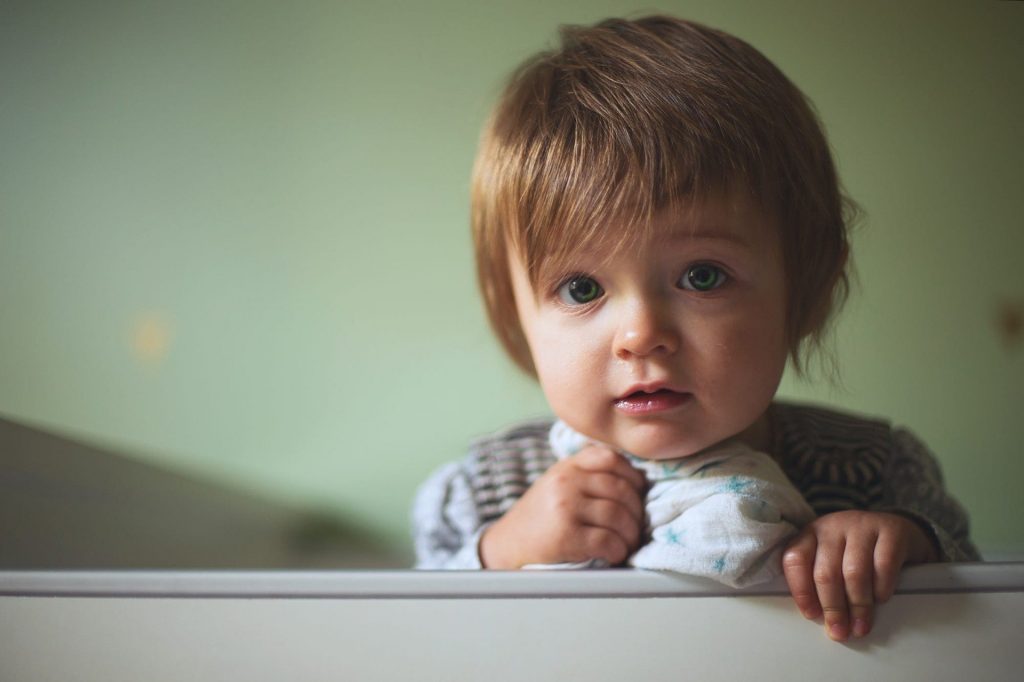
Prostock-studio/Shutterstock.com
In babies, fear is expressed through an alarming quietness of the child, or, conversely, in increased levels of activity, crying, hiding behind their mother or running away. The source of fear, in this case, is not difficult to identify.
Preschoolers and children in primary school can not always express what scares them. Parents should be alerted by their child’s constant tension, excitement, increased fatigue, restless sleep, frequent headaches, moodiness, and tearfulness. All of this suggests that the child is in a state of chronic fear and anxiety and that they require the assistance of a psychologist.
The main methods for identifying fears in children older than 3 years are based on drawings («family drawing», «draw what are you afraid of»). Techniques also used include «put fears in their houses» and «finish the tale». With their help, you can find out what scares and worries the child, and what fears prevail in them.
In high school age and adolescence, psychologists use questionnaires that allow assessing the degree of psychoemotional stress of the child, the level of anxiety and predisposition to neurosis.
Carefully find out what is really happening to your child and help them cope with their fears. Install the Findmykids app from AppStore and GooglePlay.
How to help your child cope with their fears?

Prostock-studio/Shutterstock.com
Psychotherapeutic Techniques
In the fight against children’s fears, psychotherapeutic techniques are most effective, which, with some preparation, parents can use:
Drawing
Through drawing, children let out their feelings and emotions, desires and dreams, model reality, painlessly come into contact with their fears and unpleasant, traumatic images.
Try asking your child to draw what they fear most. After that, you can rip the drawing into pieces, or burn it, or throw it out of the window with the words «You have now defeated your fear. How brave and courageous you are!»
Games
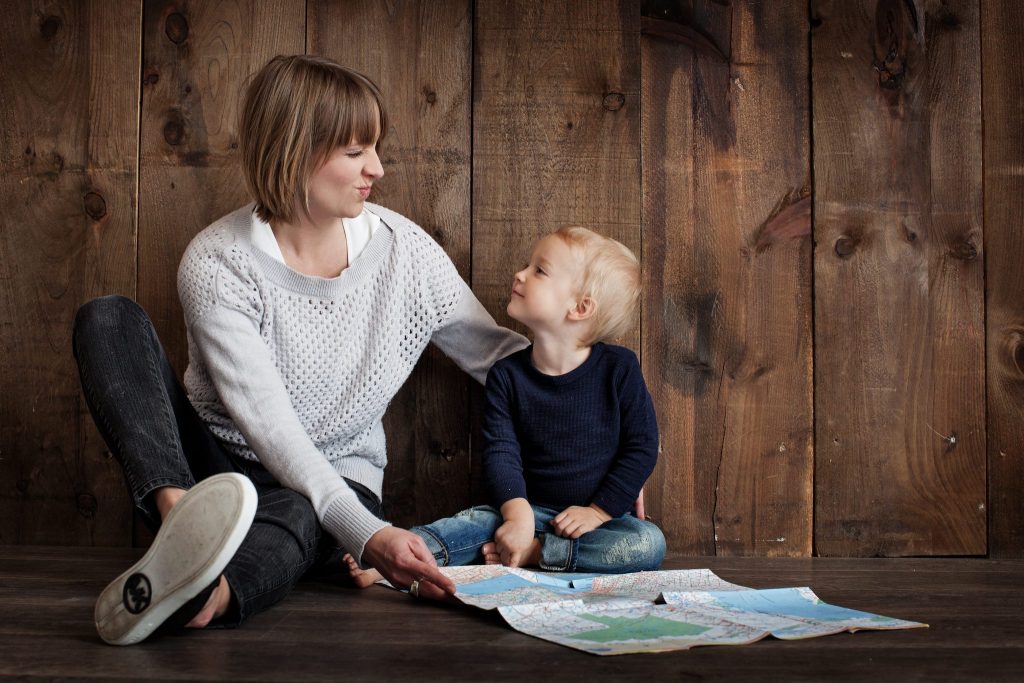
Prostock-studio/Shutterstock.com
Through role-playing games, children acquire certain skills, learn social forms of behavior, and take on different roles.
The child, joining the game, crosses the threshold of shyness and fear, experiences victories and losses, and gains self-confidence.
In children’s institutions, the game «I’m not afraid of horror stories». is used frequently. Children turn into a scary character (Dracula or Frankenstein) and then freeze. The child who has represented this character in the best way is then selected and is considered to be the winner of the round.
Therapy based on storytelling
This method is used to help with fear and anxiety in children from the age of five. A fairytale is selected or a story is made up on the spot to reflect a certain fear of the child. Over the course of the story, the characters of it, triumph over the scary character.
A child, using the example of those fictional characters, learns to face their fears and not be afraid to fight them.
How to overcome nighttime fears?
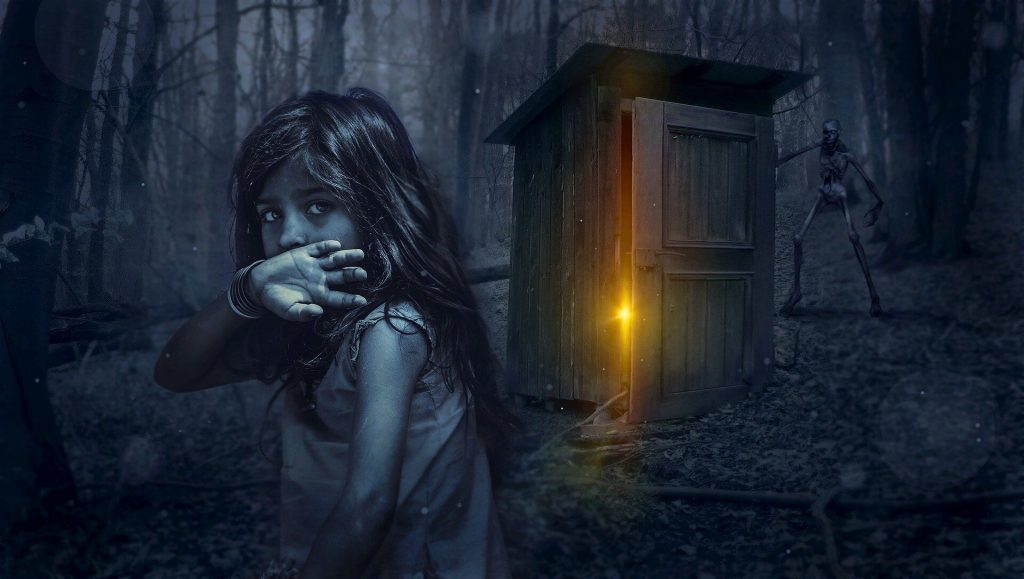
Prostock-studio/Shutterstock.com
In order for a child to sleep peacefully and without nightmares at night, a child must feel safe and know that they are not in danger.
- In no case do not shame the child because they are not behaving well and do not want to sleep alone. Sit next to them, calm them down, pat them on the head and wait until they fall asleep.
- In the afternoon, the child needs physical activity outside, such as playing outdoor games.
- 2-3 hours prior to bedtime, the child should not:
- play computer games;
- watch cartoons with frightening characters;
- participate in quarrels in the family;
- eat heavy food;
- have a stuffy room;
- wear tight and uncomfortable clothes for sleeping.
- Bedtime should be constant, should it be on a weekday or on a day off.
- The awakening of a child does not have to be abrupt. It is better not to use an alarm clock, but have the mother stroke the child.
- Strengthen the health of your child. Practicing sports and maintaining a healthy lifestyle will be the best preventative measure of nighttime fears.
Tips for parents

Prostock-studio/Shutterstock.com
To help a child cope with their fears means to understand their feelings, to hear them out and to strengthen their faith in themselves.
- Collective activities with adults and peers, such as walking, playing, visiting the puppet theater, going to the circus or playing sports, all help the child to cope with their fears. The more children are interested in different things, the more their lives are diverse and the less they will be fixated on their fear and anxiety.
- Participate actively in your child’s life, but do not try to control them omnipresently. The child must trust you and be willing to share their secrets with you.
- Create a calm and comfortable atmosphere at home, in which the child would feel loved and protected.
- Do not scare the child with fiction characters under no circumstance (for instance, «If you behave badly, the ghost will carry you away» and so on).
- Do not discuss disasters, accidents, stories about ghosts, etc, with your child. Children are sensitive, and such conversations may remain in their memory for a long time. Sometimes, adults may still even remember what they were scared of in their childhood and what scary stories did adults tell.
- Set a daily routine for your child and follow it even on weekends and holidays.
- Reduce the amount of time your child spends on gadgets.
- Do not make fun of the child’s fear, do not try to explain to them that there is nothing to fear. Better say, «I’m with you, and I understand that you’re scared».
- Be patient. Most fears go away with age. The main emphasis is on the prevention of the poisoning child’s life with fears that can develop into a pathology.
- The psychology of childhood stems from the fact that most of them are born in the family. Pay attention to your own psychological well-being. If you are anxious and restless, try not to transmit these feelings to the child.
- Do not ignore your child’s fears. If you do not know what to do and how to help your child, consult a psychologist for advice.
Consider those fears as an inevitable phase of a child’s upbringing, and take it without anxiety, condemnation or ridicule, of course. If the child feels the love and care of adults, it is certain that that they would feel supported and protected in any situation, and will be able to win the battle against their fears on their own.
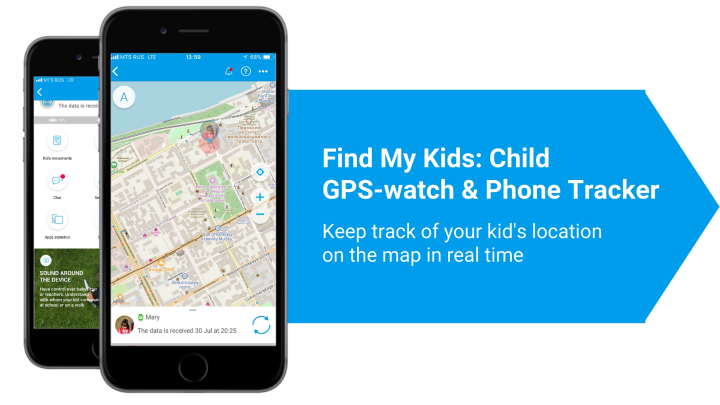
Prostock-studio/Shutterstock.com
Проверьте электронный ящик















